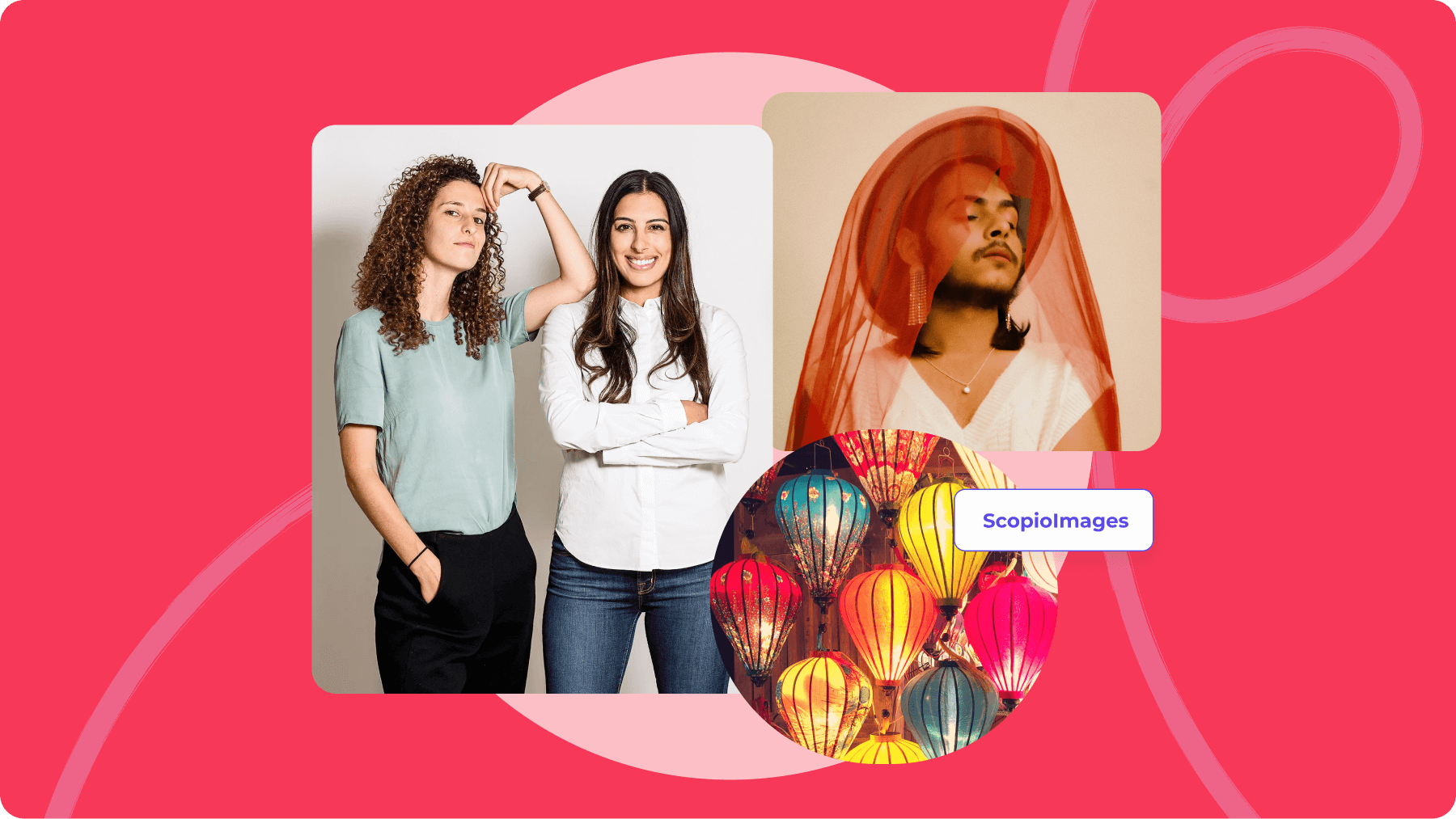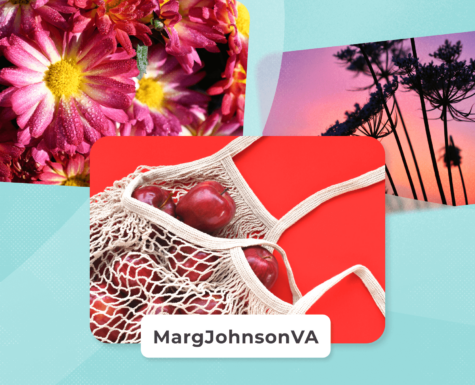Meet Our Authors: Scopio Images

This month Envato Author, Scopioimages has released a photo book that captures the global pandemic using a striking collection of 200 images. In this interview, we talk to Christina Hawatmeh, the brains behind Scopioimages and founder and CEO of Scopio.
Scopio is a photography-focused storytelling platform where anyone can share images from around the world. It is the first female-founded NFT marketplace, with the goal of elevating human stories told by people from underrepresented communities.
We delve into the world of NFTs, discuss current photo trends and find out more about the release of her new photo book, The Year Time Stopped—which sets out to influence and inspire other creatives.
Tell us about Scopio and how it all began?
I always wanted to “change the world” and I spent a lot of time thinking about what I wanted to do with my time on earth. In college, I became interested in Facebook groups and how people could use these groups to make an impact on society. I pursued this concept for years thinking of how I could work in this space, which took me to Columbia University to study for my Masters. When I saw the speed at which photo sharing was happening on social media and no one was thinking about saving history, I knew this was for me. So I founded Scopio to create a space where we could gather historical images and share them with the world.
I started Scopio with my business partner Nour Chamoun, who I met in New York. She used her skills to design an environment where this talent universe could thrive, and Scopio could take advantage of the global access provided by social media for the first time ever. Together, we tackled usage rights, cost, and access to make their platforms accessible for everyone.
What are your biggest influencers?
While I was studying politics at George Washington University, I worked in the US Congress. I was trying to understand how the world works. Then the Arab Spring, the Black Lives Matter movement, and the Venezuela protests heightened my urgency to make a lasting impact. My fascination with technology as a powerful new political platform grew. It could give people the opportunity to democratize their feelings so others can see them and understand them, without barriers.
I thought, ‘Wow, isn’t it so powerful and awesome that we can now learn about each other in that visually chilling way? That’s when I realized that if I’m going to dedicate my life to something, then I couldn’t think of a bigger impact than helping the next generation understand the world better through images we see on a daily basis.
My mom also influenced me a lot, she is a photographer and she always stresses the importance of saving images for documentation.
Christina Hawatmeh CEO, Scopio
Scopio is the first NFT marketplace founded by women. What’s it like being a woman in this industry?
There are not enough known women, especially in the tech field; so it’s definitely a challenge to live up to this position. Things are changing. This was clear when the CEO at Bumble IPO’d and the CEO at Nasdaq held her baby in her arms. I focus on moments like these to help visualize the next stages for myself. My advice is to get your work done, show it and then ask for what you want and keep doing that in phases. Also, enjoy your time and be yourself. There is a reason why so many people love Michelle Obama, she is utterly herself.
“I believe in being a motivator,” said Walt Disney. Look at the positive so you can charge forward.
Christina Hawatmeh CEO, Scopio
How has Envato Elements played a part in the growth of Scopio?
Our current customers love Envato. I think collaboration is key to solving this massive issue of representation in photography and I am excited that Envato feels the same way. It’s exciting to see Envato used for so many entrepreneurial initiatives and the underdog loves this site, which shows there is so much room for growth.
What do you think is the key to becoming successful in the photo and NFT space?
Studying is key. Learn as much as you can and get involved. It starts with you searching on google ‘what is an NFT?’ and 50 hours later you will be a pro.
You’re releasing a book this month, called The Year Time Stopped. Tell us more about this?
2020 is the year that changed everything. Our aim of this book is to change the perspective of how people see themselves and the events that happened in 2020. We spent two years making sure we did not leave any subject out. We wanted to keep a record of the period of time when people around the world were connected with one another even when miles apart. It would be great if people could support it in order to reinforce that connection and keep it as an echo of the year 2020 for future generations. It belongs on every bookshelf in the world for the next century, and every time you open it you’ll see something new that makes you feel resilient.
What do you want people to take away from The Year Time Stopped?
The Year Time Stopped was created by the people not by a brand or a journalist; by photographers from around the world who were restlessly on the streets capturing historical moments that made so much change. I wish people would take this book as a record of one of the toughest, most pivotal years. They should look at it as an achievement because, in 2020, everyone was fighting their own fight.
The point of this book is to remind you of your humanity and for us to have a reference point to see the starting of our behavior change that ensued after this pivotal year.
Christina Hawatmeh CEO, Scopio
We’ve recognized that NFTs are in hot demand right now and we only see this growing. Why do you think this is?
For me, it is a practical thing. It solves a lot of my business problems from payments to tracking. NFTs give ownership to multiple parties through wallet splitting and gives the model in the photo a chance to earn too. Web 2 photography is broken, this gives us a fresh start and more ownership for the artist.
Are there any photo trends that you’re loving at the moment?
I think we are in a new renaissance era. I think COVID is similar to what the black plague did to the renaissance era. People want art and culture more than ever. They want it at the center of their society because they were deprived of joy for so long. On the other hand, reality-based content, and documentary, focuses on micro-communities. I am especially excited about the advances Asian Americans have had due to the popularity of movies and pop culture recently.
Imagery, Media and content open up our minds. We now have the tools to connect different parts of the world together to tell better stories on a micro level.
Christina Hawatmeh CEO, Scopio
What’s your advice for other Envato Authors who want to be successful in this space?
Make it and they will come. Complete your story before you get an opportunity. Make the opportunity for yourself. Collaborate with others, help other people be in your story, and elevate their voices for more success for all of you. You will be more successful the more you collaborate.
You can view Scopioimages full portfolio here. If you have any questions or want to continue the conversation, jump over to the forums and say hello!






